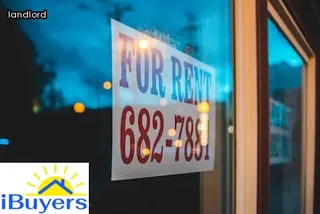In Maryland, a tenant's security deposit can be used to cover any damage to the rental property that exceeds normal wear and tear. If the landlord finds damages that exceed the amount of the security deposit, they can charge the tenant for additional costs.
Landlords must provide tenants with an itemized list of damages along with an estimate for repairs within forty-five days of the tenant vacating the property. The tenant is responsible for paying for any repairs that are not covered by their security deposit.
In case of a dispute between landlord and tenant over refunding or deducting from a security deposit, either party can file a claim in court. The court will then decide on an outcome based on evidence provided by both parties, such as photos or estimates of repair costs associated with damages to the rental property.

Understanding ordinary wear and tear is an important part of understanding Maryland's laws when it comes to tenant damage to rental property. Ordinary wear and tear refers to the gradual deterioration of a rented property due to its normal use, which is different from damages caused by misuse or neglect.
Generally, tenants are only responsible for damages that exceed the normal wear and tear that a property experiences over time. In some cases, the landlord may be allowed to deduct repair costs from the security deposit if they can prove that there was damage beyond what could be expected from ordinary wear and tear.
However, landlords are not able to charge tenants for missing items or any other damage that was already present when they moved in unless they can prove that it happened as a result of negligence or misuse by the tenant. Landlords should also keep detailed records of any damages caused by their tenants to ensure that they are able to document any claims for repairs against their security deposits.
It is important for both landlords and tenants to understand Maryland’s laws on tenant damage to rental properties in order to prevent such damages from occurring. Landlords should inspect the property before and after a tenant moves in, noting any pre-existing conditions or damage that may occur during tenancy.
Tenants should be aware of their responsibilities related to the upkeep of their rental property, as outlined in their lease agreement. Additionally, tenants should take steps to protect the property from any foreseeable damages, such as securing windows and doors when leaving the property unattended.
Lastly, it is recommended that both parties document any maintenance issues or damages that occur during tenancy so that each party can be held accountable for repairs or costs associated with damages.

In Maryland, tenants have the right to repair damage to their rental property and deduct the cost of the repairs from their rent if certain conditions are met. These regulations are covered under state law.
In order for a tenant to take advantage of this legal process, they must first provide written notice to their landlord and give them an opportunity to fix the damage. The tenant must also obtain written estimates for the repairs and keep careful records of all costs incurred as evidence.
Additionally, tenants may only use this option when necessary repairs would not exceed one month's rent and if the damages were caused by ordinary wear and tear or negligence by the landlord. Tenants should be aware that any deductions taken must be reasonable in amount and cannot exceed $500 in any given year.
Understanding how these laws work is essential for both landlords and tenants in order to ensure that everyone’s rights are respected within a rental agreement.
Rental property surety bonds are an important part of understanding Maryland's laws on tenant damage to rental property. These bonds provide a guarantee that if the tenant causes any damages to the landlord's property, the bond will cover those costs up to a certain limit.
The bond is typically put in place to protect landlords from loss due to tenant negligence and malicious intent, including damage caused by theft or vandalism. Surety bonds can also be used as an additional security measure for landlords, ensuring that the tenant will fulfill their obligations under the lease agreement.
The cost of a surety bond will depend on several factors, such as the total value of the rental property, how much coverage is needed, and other factors that may affect the risk associated with insuring a particular type of rental property. In addition to protecting landlords from potential losses due to tenant negligence or malicious intent, surety bonds can also provide peace of mind for tenants who may be concerned about their financial responsibility should they cause damage during their tenancy.

In Maryland, tenants are legally responsible for any damage that they cause to the landlord's rental property. This includes intentional damage or accidental damage caused by negligence.
Landlords have the right to pursue compensation from the tenant if any damage is done to their property, so it is important for tenants to understand and abide by their state's laws on this matter. Tenants must also be aware that landlords may deduct damages from their security deposit when they move out.
In addition, landlords can sue tenants in court if they refuse to pay for the damages. Ultimately, tenants should try and keep rental property in good condition, as it not only protects them legally but also allows them to get back their full security deposit at the end of the tenancy.
In Maryland, landlords have the legal right to recover damages caused by tenants to rental property. This includes any damage or destruction that is done intentionally or unintentionally due to negligence.
The law states that a landlord can sue the tenant for the cost of repair or replacement of damaged items, as well as for any lost rent caused by the tenant’s actions. Landlords may also be able to seek compensation from tenants for attorney fees and court costs if they have to pursue legal action against them.
In addition, tenants are responsible for any damage they cause during their tenancy and must pay for it before leaving the property at the end of their lease. If a tenant fails to pay, a landlord can take them to court in order to recoup their losses.
It is important for landlords to understand their rights when it comes to recovering damages caused by tenants in order to protect themselves and their rental properties.

When a tenant is negligent in their care of a rental property, the costs of repairing their damage can often be immense. In Maryland, tenants are responsible for any damage they cause to the rental unit, even if it was accidental or caused by another party.
This means that landlords must often pursue legal action in order to be compensated for such damages. If a landlord is able to successfully prove that the tenant was responsible for the damage and negligence was involved, then the tenant may be liable for both the cost of repairs and other associated expenses.
Unfortunately, this process can take time and money which could have been avoided had the tenant been more careful with their rented space. Regardless of whether negligence is involved or not, it’s important for landlords to understand Maryland's laws on tenant damage to rental property so that they can protect their interests and ensure that they receive adequate compensation when necessary.
When renting a property in Maryland, it is important to understand the difference between vandalism and normal wear and tear. Vandalism is defined as intentional destruction or damage to property with malicious intent, and can include graffiti, broken windows, or damaged walls.
Normal wear and tear is damage caused by everyday use of the rental property that does not require repair beyond regular maintenance. Examples of normal wear and tear would include small scratches on the walls or faded paint from natural sunlight over time.
Tenants are responsible for any damages to their rental property that go beyond normal wear and tear; if the landlord can prove the damage was due to vandalism, the tenant may be liable for any repairs necessary. Knowing the difference between vandalism and normal wear and tear can help tenants avoid potential legal issues when renting in Maryland.

In Maryland, tenants are responsible for any damage to rental property that is beyond normal wear and tear. Tenants who destroy or significantly damage rental property may face serious consequences depending on the severity of the destruction.
If only minor damage has been done, landlords can pursue small claims court action against a tenant in order to recoup repair costs. In cases where the damages are more extensive, landlords may be able to evict a tenant and even charge them with criminal activity.
If a tenant is found guilty of criminal activity, they may have to pay restitution and/or serve jail time depending on the situation. The laws regarding tenant damage are very clear in Maryland and it is important for renters to understand what could happen if they cause significant destruction to rented property.
When tenants damage rental property, landlords may have the right to file a liability claim against them. In Maryland, there are specific laws that regulate the conditions and liabilities of both tenants and landlords when damages occur in rental properties.
These laws stipulate how much a landlord can charge for repairs and replacements due to tenant-caused destruction, as well as the situations in which a landlord is not liable for any costs related to the damages. Additionally, these laws also outline how tenants must respond to landlord claims and what their responsibilities are with regards to payment.
Understanding Maryland's laws on tenant damage to rental property is important for both tenants and landlords in order to ensure they are not taking on liabilities they should not have.

When assessing the cost of repairing or replacing rental property that has been damaged by a tenant, there are several factors to consider. The type and extent of the damage must be determined before any decision can be made.
For example, if the damage is minor and can be easily repaired, then it may be more cost effective to repair the property instead of replacing it. However, if the damage is extensive or irreparable, then replacement may be the only option.
Additionally, landlords should check their state's laws on tenant damages to rental property so they know what rights they have when dealing with this issue. In Maryland, for instance, a landlord may sue a tenant for damages resulting from malicious or negligent acts but cannot require tenants to purchase liability insurance as security against potential damages.
Understanding these laws can help landlords when deciding whether to repair or replace rental property that has been damaged by their tenants.
As a landlord in Maryland, there are certain laws that must be followed when renting out a home or apartment. Understanding and following these laws can help minimize the risk of tenant damage to rental property.
One way to reduce the potential for tenant damage is to thoroughly screen potential tenants before signing a lease agreement. A thorough screening should include a credit check, background check, and references from past landlords.
Another strategy for minimizing the risk of tenant damage is to document the condition of the rental property before any tenants move in. This can be done by taking pictures or videos of all rooms in the rental unit and noting any existing damage on an inspection report.
In addition, having a written lease agreement with clear expectations regarding tenant damages can help prevent any misunderstandings between both parties that could lead to costly repairs down the road. Finally, collecting security deposits from tenants can help cover any necessary repairs that may arise due to tenant negligence during their tenancy.

Using a rent escrow service to handle tenant damage to rental property in Maryland can be beneficial in certain situations but also comes with its own set of drawbacks. Escrow services provide landlords with an efficient and reliable means of collecting and disbursing funds for damages, helping to ensure that funds are used for the intended purpose, like paying for repairs or deducting from the tenant's security deposit.
However, it is important to understand that this process still requires the landlord and tenant to agree on the terms of a settlement, which may require additional time and effort. Additionally, an escrow service may add extra costs that must be borne by either party or split between them.
Although these services can provide landlords with peace of mind when dealing with tenant damages, it is essential that they carefully weigh their options before making a decision.
In Maryland, it is important for landlords to understand their rights and obligations when it comes to unexpected wear and tear on rental property. As a landlord, you should work with tenants to ensure that they understand the terms of the lease agreement regarding damages.
Additionally, you can make sure your rental property is well-maintained and up-to-date by performing regular inspections and regularly reviewing any damage or necessary repairs. Creating a detailed inventory of the property prior to renting can also help prevent unexpected costs down the line.
You may also want to consider increasing your liability insurance coverage in case of major damage or destruction caused by tenants. Finally, staying informed about tenant laws in Maryland can help you protect yourself from potential disputes or misunderstandings over damage done to your rental property.
By taking proactive steps such as these, landlords can be prepared for any unexpected wear and tear on their rental property.

When renting out a home, it can be difficult to protect yourself against the risk of unforeseen damage caused by tenants. Many landlords may not know that Maryland laws allow them to insure their rental property against such damages, which can ultimately save them from financial losses.
Insuring your rental home is an effective way to safeguard yourself from any potential destruction that could occur while a tenant is living on the premises. Investing in insurance helps ensure that you will be able to recoup any costs associated with repairs or replacement if an accident were to occur.
Additionally, it can provide peace of mind knowing you are protected in case something happens and there is need for remedy. In addition to the protection offered by insurance, many policies also include coverage of legal fees in cases where you are taken to court by a tenant who has caused damages.
Ultimately, investing in insurance for your rental property is a smart decision which helps avoid potential costly risks and provides valuable coverage if accidents do happen.
If you are a landlord in Maryland and a tenant has caused damage to your rental property that you cannot afford to repair, there are several options you can consider. One option is to deduct the cost of repairs from the tenant’s security deposit if applicable.
However, this is only possible if the amount of the security deposit is equal to or greater than the cost of repairs. Another option is to require the tenant to pay for the entire cost of repairs if they have caused extensive damage.
In addition, you may be able to take legal action against your tenant by filing a lawsuit with your state court or small claims court if necessary. Finally, some landlords may be able to work out an arrangement with their tenants where they both agree on a payment plan in order for them to pay off the damage costs over time.
Ultimately, depending on your situation it is important to research and understand Maryland’s laws regarding tenant damage when deciding which option would be best for you as a landlord.

In Maryland, it is important to understand the laws regarding tenant damage to rental property in order to handle disputes over who is responsible for repairing any damages. Landlords are responsible for keeping their rental properties in good condition and tenants are expected to pay for any damage beyond normal wear and tear.
If a landlord suspects that a tenant has caused damage, they should document the condition of the property before and after the tenant moves out. The landlord can then take legal action if necessary, as long as they can prove that the tenant was negligent or maliciously damaged the rental property.
Tenants have certain rights when it comes to disputes with their landlords, such as the right to receive written notice of any repair costs that may be charged and the right to dispute any charges deemed unfair. When handling disputes over repair costs, tenants should make sure they keep track of all communication between themselves and their landlord so that they can provide evidence if necessary.
It is also important for both parties to be respectful throughout the process in order to reach an amicable agreement.
Renting property in Maryland can be a great way to get an affordable and desirable living space, but it can also come with some unexpected expenses if the tenant causes damage to the property. The Neighborly Done Right Promise offers tenants and landlords alike peace of mind by helping protect against these unforeseen costs associated with rental properties.
When a tenant signs up for the Neighborly Done Right Promise, they agree to take responsibility for any damages that may occur during their tenancy. Landlords are also protected as their rental property is covered by the promise.
In addition, the promise includes assistance in case of emergency repairs or maintenance that may arise while the tenant is living in the rental property. Furthermore, if there is any dispute between landlord and tenant, both parties have access to mediation services through Neighborly Done Right's dispute resolution system.
By signing up for the Neighborly Done Right Promise, renters can rest assured knowing that they will not be held responsible for any damages caused by their tenure and that both parties are adequately covered in case of disputes or unforeseen expenses related to rental properties in Maryland.

Renting property in Maryland comes with obligations and responsibilities. As such, it is important for tenants to understand the relevant state laws on tenant damage to rental property.
According to state statutes, tenants are responsible for compensating landlords for any damage they cause beyond ordinary wear and tear. This includes things like non-accidental damage or destruction of fixtures or appliances that were provided by the landlord.
Additionally, the tenant may be liable if their negligence leads to damage to a unit or other parts of the building. It is an important responsibility of a tenant to take care of their rented property as if it were their own.
To ensure that both parties are aware of their rights and responsibilities, it is recommended that tenants and landlords review applicable lease agreements before signing them so that both parties have a clear understanding of what is expected from each other in terms of taking care of rental property. Furthermore, it is essential that tenant’s familiarize themselves with Maryland's laws on tenant damage to rental property so they can make informed decisions about renting a unit and hold themselves accountable for any damages caused during their tenancy.
In Maryland, landlords are allowed to charge tenants for damages up to one year after they move out of the rental property. This is due to the state’s Statute of Limitations on Contract Claims, which states that a landlord has 12 months from the date that the tenant moves out of the property to file a lawsuit against them.
During this period, landlords can charge tenants for any damage caused to their rental property during their tenancy. However, the burden of proof lies with the landlord, meaning they must provide evidence that shows that the tenant damaged the property in order for charges to be applied.
Additionally, landlords are only allowed to charge tenants for actual costs incurred as a result of repairs or replacements due to damages caused by the tenant and are not allowed to seek punitive damages. Finally, if a landlord does choose to pursue legal action against a tenant for unpaid damages after one year has passed since they moved out, it is possible for them to still win in court depending on how strong their case is.

In Maryland, landlords have up to three years from the date of the tenant's departure from the rental property to file a lawsuit for damages due to tenant negligence.
Additionally, if any remaining unpaid rent is included in the lawsuit, it must be filed within one year from the date of the tenant's departure.
landlord-tenant laws in Maryland also stipulate that upon filing a lawsuit for damages, the landlord has up to five years for collection on any money owed.
Given these stipulations, landlords should understand their rights and responsibilities under Maryland law regarding pursuing tenants who may have caused damage to rental property during their tenancy.
In Maryland, a landlord can charge for painting rental property if the tenant has caused damage to the paint or walls beyond normal wear and tear. This includes any holes in the walls from nails, screws, or other items used to hang pictures or decorations.
Additionally, excessive smoke residue on walls and ceilings could also be considered damage requiring painting. In order to charge for painting, the landlord must have an estimate of the cost of repairs and provide it to the tenant prior to deducting it from their security deposit.
The tenant then has three days to dispute the charges in writing with proof that they did not cause the damage requiring painting. If no dispute is received in this timeframe, then the landlord is legally allowed to use part of the security deposit towards covering painting costs.
Property code 8-203 in Maryland is a law that outlines the rights and responsibilities of tenants when it comes to damage to rental property. According to this code, tenants are responsible for any damages caused by their own negligence, willful destruction or abuse of the rental property.
This includes intentional destruction of property as well as accidental damage due to failure to maintain the property. Furthermore, tenants must pay for any repairs needed due to such damage and are also responsible for returning the rental property in the same condition as when they initially moved in.
Tenants who fail to comply with this code may face consequences including eviction and legal action from their landlord. It is important for Maryland tenants to understand their rights and responsibilities under this code so that they can avoid potential disputes with their landlord over tenant damage.
A: Under Maryland Landlord-Tenant Law, a landlord must make reasonable efforts to repair or replace any damaged rental property caused by tenants and hold the tenants financially responsible for the costs associated with such repairs or replacement.
A: Under Maryland Landlord-Tenant Law, landlords are responsible for ensuring that the rental property is maintained in a safe and habitable condition. If tenant damage occurs, landlords have the right to seek compensation from tenants for any repairs or replacements needed to restore the property to its original condition.
A: Under Maryland Landlord-Tenant Law, a landlord may deduct from the security deposit only for damages that exceed normal wear and tear. The landlord must provide the tenant with an itemized list of any deductions made from the security deposit or return the full amount within 45 days of termination of the tenancy. In addition, a tenant has the right to dispute any deductions made by their landlord by filing a complaint with their local District Court.